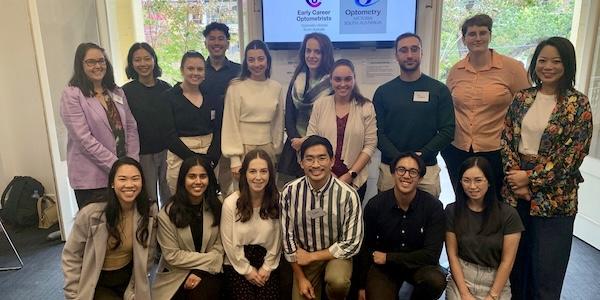17.04.2024
By Dr Melinda Toomey, PhD
Optometrists play a pivotal role in the healthcare of individuals living with dementia, a condition that impacts more than 400,000 Australians.1 Dementia, characterised by a decline in memory, reasoning, communication abilities, and the capacity to perform daily activities, also affects vision and visual perception. Vision impairment has been identified as a potential modifiable risk factor for the development of dementia2, with an eight times higher hazard of dementia among the visually impaired. 3
Vision plays a crucial role in navigation, safety, and the overall quality of life. For individuals with dementia, vision impairment can exacerbate confusion, increase the risk of falls, and further diminish independence.4 Individuals with dementia are more susceptible to vision problems due to decreased cognitive ability to communicate discomfort or changes in vision, leading to underdiagnosis and under-treatment of eye conditions.5
Dementia-friendly eyecare not only addresses the primary vision needs of patients but also considers the cognitive challenges they face. By adapting communication, examination procedures, and the clinical environment, optometrists can ensure comprehensive, accessible, and sensitive care that acknowledges the unique needs of these patients.6
Optometrists seeking to enhance their skills in providing dementia-friendly care can do so by completing the Dementia-Friendly Eyecare course offered by the University of Melbourne.
As the global population ages and the prevalence of dementia rises, the demand for dementia-friendly eyecare services will only increase. Optometrists have a critical role in meeting this demand by adapting their practices to serve the vision and health needs of individuals with dementia effectively. By pursuing further education on dementia-friendly eyecare and implementing best practices, optometrists can significantly enhance the quality of life for their patients, ensuring that they receive the compassionate and comprehensive care they deserve.
Take the Dementia-Friendly Eyecare course here.
References
- Health AIo, Welfare. Dementia in Australia. Canberra: AIHW; 2024.
- Nagarajan N, Assi L, Varadaraj V, Motaghi M, Sun Y, Couser E, et al. Vision impairment and cognitive decline among older adults: a systematic review. BMJ Open. 2022;12(1):e047929.
- Lee ATC, Richards M, Chan WC, Chiu HFK, Lee RSY, Lam LCW. Higher Dementia Incidence in Older Adults with Poor Visual Acuity. The Journals of Gerontology: Series A. 2020;75(11):2162-8.
- Zhang W, Roberts TV, Poulos CJ, Stanaway FF. Prevalence of visual impairment in older people living with dementia and its impact: a scoping review. BMC Geriatr. 2023;23(1):63.
- Wong MY, Chen CL, Ong YT, Hilal S, Ikram MK, Kumari N, et al. High prevalence of undiagnosed eye diseases in individuals with dementia. J Am Geriatr Soc. 2015;63(1):192-4.
- Piano MEF, Nguyen BN, Gocuk SA, Joubert L, McKendrick AM. Primary eyecare provision for people living with dementia: what do we need to know? Clin Exp Optom. 2023;106(7):711-25.
 View
View


